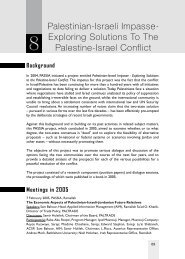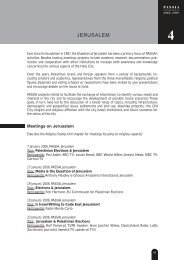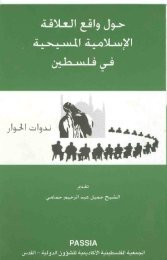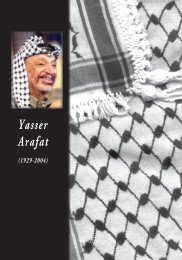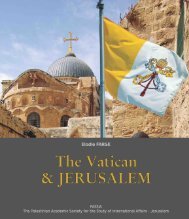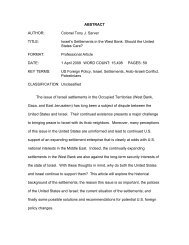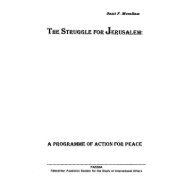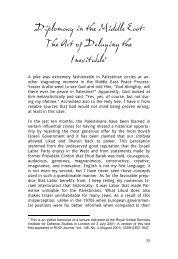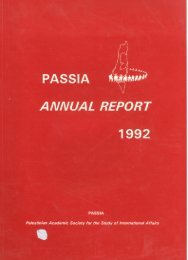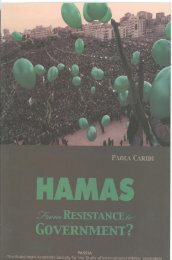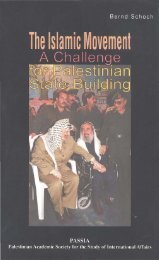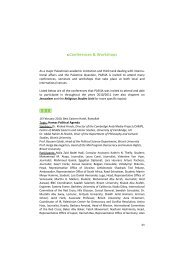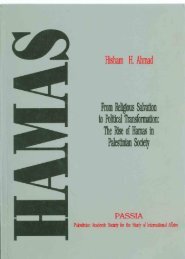FINLAND & PALESTINE Proceedings of a Joint Workshop
FINLAND & PALESTINE Proceedings of a Joint Workshop
FINLAND & PALESTINE Proceedings of a Joint Workshop
Create successful ePaper yourself
Turn your PDF publications into a flip-book with our unique Google optimized e-Paper software.
earlier. This connection manifested itself as frequent contacts<br />
between Finnish and German scholars in the 1920s and the<br />
1930s (see e.g. Aalto 1971 and Karttunen 1990; Isotalo 1994 on<br />
structures <strong>of</strong> interpretation). It is also worth keeping in mind<br />
that it was to Berlin that Landtman sent Granqvist for the archives.<br />
If one looks at the Finnish classical Orientalism <strong>of</strong> the era<br />
through Edward Said's criticism <strong>of</strong> Orientalism, Finnish classical<br />
Orientalism seems structurally uniform with Euroean discourse.<br />
In Said's study, however, his choice <strong>of</strong> material restricts<br />
the European Orientalist discourse to British and French Orientalism<br />
only. The discourse formations <strong>of</strong> Finnish Orientalism,<br />
the origin <strong>of</strong> which is mainly in German Orientalism, produced<br />
diverse information relying on diverse premises, structures <strong>of</strong><br />
interpretation and methodological solutions (lsotalo 1994).<br />
This allows one further to conclude that Orientalist discourse<br />
in Germany was not unified. A careful study <strong>of</strong> Orienta list discourse<br />
in Finland gives reason to further criticize Said's delimitation<br />
<strong>of</strong> material in Orientalism (1978) - criticism that Edward<br />
Said responded to in works that followed the book which can,<br />
from a modern-day viewpoint, be considered a classic. The<br />
view on German Orientalism opened up by Granqvist's study <strong>of</strong><br />
Palestine shows that European Orienta list discourse was not<br />
monolithic.<br />
Granqvist returned to Helsinki after her research period in Artas.<br />
She was soon to find out that Gunnar Landtman and the<br />
other 'Sirs <strong>of</strong> the Senate' did not approve <strong>of</strong> her new topic and<br />
her methodological solutions. Landtman suggested that<br />
Granqvist's topic and problem-setting were 'against common<br />
research norms' (Widen 1989, 27-9). Since Granqvist was denied<br />
the doctoral degree under Gunnar Landtman's supervision<br />
at the University <strong>of</strong> Helsinki, she resorted to Edward Westermarck,<br />
Pr<strong>of</strong>essor <strong>of</strong> Philosophy at Abo Akademi.<br />
30



